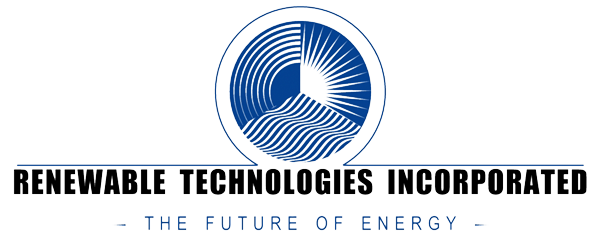The ability to store energy for later use is not new. While batteries have been around since the 1800s, Sony commercialized the first lithium-ion batteries used for solar storage in the 1970s. Since then, advances in battery technology have accelerated the shift away from fossil fuels and toward renewable energy sources. To ensure that solar-powered households have access to electricity even when the sun isn’t out, battery storage technology is essential. You might be shocked to hear that battery storage is the key to maximizing your solar system’s return on investment. When you install energy storage alongside your home solar panels, you may save any extra power your panels generate for later use. This allows you to avoid using the grid at night by storing renewable energy for later use.
Power outages are happening more often across the United States. Blackouts are stressful for everyone, regardless of whether they are caused by grid instability, weather, or utility regulations. The Associated Press found that, during the previous two decades, the number of power outages in the United States caused by weather events has increased by 100%. These results were discovered in the AP report:
- Maine, Louisiana and California experienced an increase of 50% or more in total outage duration.
- Storms in Maine left more than a third of the state’s population without power due to winter storms in 2017.
- Louisiana regulators approved $3.2B in charges from hurricane damages in 2020 and 2021, which will cost the average residential customer almost $100 per year for 15 years.
- In California, power has been shut off to more than 100k customers with medical needs over the past five years.
Power failures are a common occurrence in Puerto Rico. Schools are being closed, traffic is a nightmare, and citizens’ health and safety are at risk due to the frequency and duration of power outages caused by the city’s outdated grid and lack of maintenance. These are just some of the emotional and financial effects of the growing frequency of blackouts.
Having a solar-only system means you can’t store energy for later use, such when the power goes out. In the event of a blackout, having a solar energy system with battery backup can help you keep your most essential electronics running. More importantly, a solar-only system will stop working if the power grid fails. An energy storage battery can keep your home solar system producing power even when the power goes out in the grid.
Maximum Economic Benefit from Your Solar System
The financial benefit should be taken into account when deciding whether or not a battery should be purchased in conjunction with a solar energy system. Modern solar batteries can do more than just charge and power your essential home electronics. If you live in a time of use (TOU) area, for example, you may be surprised to hear that there are different battery storage configuration options that can assist maximize your savings. Sunnova customers may rest assured that they will derive the greatest possible financial reward from their solar + storage system thanks to our expert battery configuration services.
We consider your utility and grid connections during the installation and configuration of your solar battery. As soon as we know what incentives and rebates, you’re eligible for, we get to work making sure your battery can handle your most important loads.
Incorporating Time-of-Use and Net-Metering Factors
With time-of-use (TOU) tariffs, the cost of a unit of power use varies throughout the day. Peak demand times are also when net metering credits are at their highest. To help you get the most out of the utility bill credits you’re entitled to as a Sunnova client, we may set up your system so that any energy you produce in excess is sent back to the grid during peak hours. In the event of a grid outage, clients with retail rate net metering can set their batteries to give maximum backup power, or they can set their batteries to self-consumption mode, which will provide daily power. If you don’t have access to net metering, we can still set up your solar battery to provide enough energy to power your home on its own at night. In this approach, you can reduce your grid electricity consumption while retaining the flexibility to draw more power when necessary.
Energy Independence
You can reduce your reliance on grid-tied power and increase your savings by installing a solar energy system with storage and adopting energy-efficient behaviors, regardless of where you reside or the state of your local utilities.
Lithium-Ion vs. Lead-Acid
Golf carts, wheelchairs, and scooters, to name a few, often employ lead-acid batteries because of their compact size and low cost. Due to its short lifespan and potential need for frequent replacement, lead-acid batteries are most cost-effective for brief bursts of backup power and occasional use.
Since they are smaller and can be discharged further than lead-acid batteries, lithium-ion batteries are often seen as the best choice for residential solar storage. Lithium-ion batteries have a long lifespan, require very little maintenance, and can be used daily with no reduction in performance.

